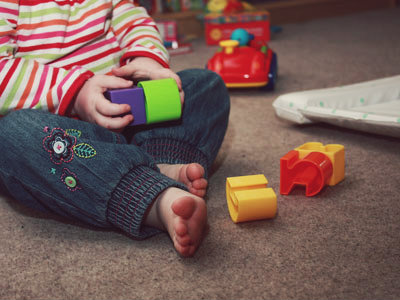
Over the last eight weeks, the Department for Education has been consulting on the new Special Educational Needs Code of Practice: a piece of guidance that sets out how councils are expected to support children who have special educational needs (SEN).
The consultation closed yesterday, but the proposed code does not go far enough to promote early help and better identification of children with SEN, including those with multi-sensory impairments. It should also set out the role of the key worker more clearly.
Because of a lack of access to sensory information, deafblind children face greater challenges to understand and learn about the world around them and can experience significant developmental delay from a very early age.
Early help, like specialist communication and mobility support for congenitally deafblind children, from birth or onset of diagnosis, is vital to help children access future social and educational opportunities. It is also hugely important for those working with deafblind children, so they can have the correct resources and support.
Under the statutory deafblind guidance, councils have a legal duty to identify, make contact with and keep a record of deafblind people in their area. Research from Sense, however, shows authorities often fail to identify deafblind children, with most only identifying 10% of the deafblind children in their area. While each council should be identifying 31 deafblind children per 100,000 of the population, in practice most only identify three per 100,000.
Under the Children Act 1989, councils must maintain a register of disabled children, but it’s proved an ineffective tool for identifying children with sensory impairments or other low incidence disabilities, as many practitioners don’t have the expertise to identify them.
This means there’s less provision of early identification, which can lead to far poorer outcomes for children with sensory impairments. At Sense, we remain concerned that the new legislation does not address the issue of poor identification or set out any accountability mechanisms for how this widespread failure can be addressed.
In addition, the vital role of the key worker in the assessment and planning process is not sufficiently clear in the new code. It is not unusual for parents of a deafblind child to work with over 30 professionals on all aspects of their child’s education and care.
Parents who spoke to Sense were eager to receive more support with co-ordinating care and assessments and to have access to independent advice and support.
The results of the consultation will be released in the New Year. We hope the DfE will take into account the need to ensure better access to early intervention.
Without this vital focus, key opportunities to help children with SEN needs reach their full potential will continue to be missed.
Kate Fitch is deputy head of public policy at deafblind charity Sense


 Family help: one local authority’s experience of the model
Family help: one local authority’s experience of the model  ‘I spent the first three months listening’: how supportive leadership can transform children’s services
‘I spent the first three months listening’: how supportive leadership can transform children’s services  How senior leaders in one authority maintain a culture of excellence
How senior leaders in one authority maintain a culture of excellence  How staff support ensures fantastic outcomes for children and families
How staff support ensures fantastic outcomes for children and families  Workforce Insights – showcasing a selection of the sector’s top recruiters
Workforce Insights – showcasing a selection of the sector’s top recruiters 

 Facebook
Facebook X
X LinkedIn
LinkedIn Instagram
Instagram
Comments are closed.